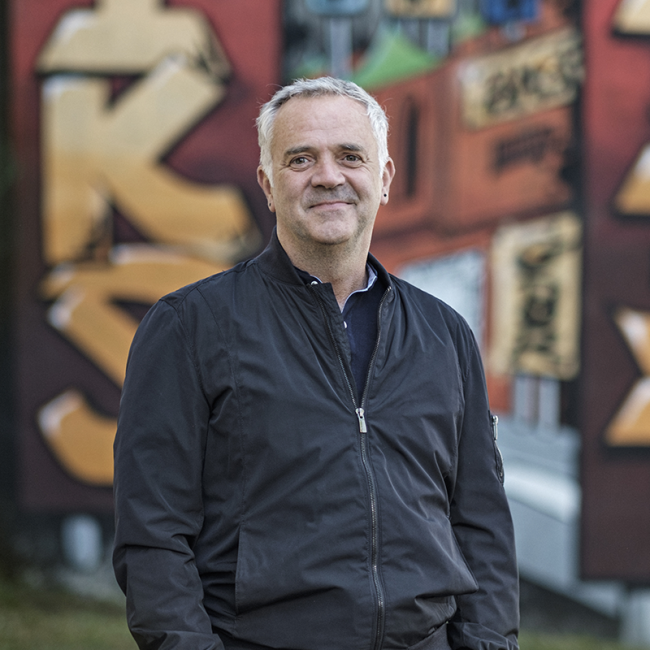Welcome Crispin Thurlow, new Ander Visiting Professor at Karlstad University
2025-10-30Crispin Thurlow, Professor of Language and Communication at the University of Bern, Switzerland, is the new Ander Visiting Professor at Centre for Geomedia Studies.
Crispin, tell us about your background
– In addition to my main professorship at Bern, I’m affiliate professor in our Centre for the Study of Language and Society (CSLS) and in the Centre for Diversity Studies at the University of Witwatersrand, South Africa. Before moving to Switzerland in 2014, I was Professor of Communication for eleven years at the University of Washington, USA and before that a lecturer at Cardiff University, UK where I’d previously completed my PhD. Trained originally in psychology, I also hold degrees in marketing and communication studies. Once upon a time, I trained as an actor too.
How would you describe the field Geomedia?
– I first came across Geomedia – as a label and a field – in 2016 when I had the pleasure of visiting Karlstad for the first time. That was when I came into contact with a world of wonderful scholars who, like me, were interested in geographically-sensitive media and communication research. In this sense, Geomedia is an interdisciplinary field where scholars examine how media – broadly conceived – help organize spatial experiences and, in turn, how people’s everyday experiences of space/place influence their communication practices.
Why is it important to your work?
– I usually identify as a sociolinguist or discourse analyst, although interested in language only insofar as it functions alongside other modes of communication. This multimodal approach keeps me attentive to images, sounds, bodies, materials, technologies, and spaces. The intersection of language, communication and space has long shaped my research, often under the label of linguistic or semiotic landscapes – even tomatoscapes. In all this work, I focus on mediatized texts such as the news media and digital media, though I now view “media” much more broadly: as any technology or infrastructural practice through which people understand and organize their lives – whether its dinner plates and infinity pools, or garbage bags and plastic bottles. Much of this meaning making circulates across space and even globally.
Tell us about some Geomedia-related research you’ve conducted
– Examples of specific projects from my past and current research include the representation of young people’s technology use in news media and stock photography. In the domain of tourism, I’ve studied placemaking as it emerges in commercial and social media texts as well as through emplaced and embodied practices. Another long-standing strand of my work is elite discourse where I’ve documented how status and privilege are mediatized but also mediated in bodily, spatial and material ways. This is where dinner plates and infinity pools enter the picture. Currently, my work is all about rubbish: how waste and discard practices are mediatized and mediated in everday language and communication. This is where garbage bags and plastic bottles enter the picture.
What expectations do you have for your Visiting Professorship?
– Well, I remember with such fondness and gratitude my first visit to the Geomedia research center 2016. What I encountered then was a very collegial, truly interdisciplinary space and I left after that short visit feeling quite a bit smarter than when I arrived. Without putting too much pressure on my Karlstad colleagues, I’m expecting even more dramatic results after this year-long engagement! All being well, the feeling will be at least a little mutual too.
Research
- Dishing up Distinction: Language Materiality and Multimodal Coherence in Elite Foodways
- Staging a tomatoscape - A case study in place branding and/as semiotic reflexivity
- Liquid power: reading the infinity pool as a global semioscape
- The discursive chronotopes of waste: Temporal laminations and linguistic hauntings
- Seeing Through Sustainability and the Wasteful Rhetorics of (Un)Knowing


